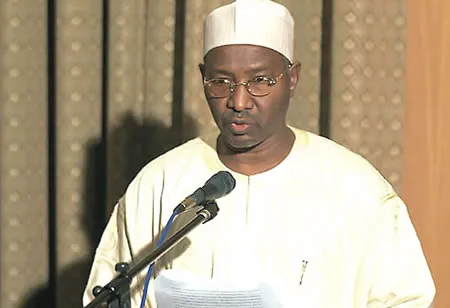Nigeria
ACF Chief Bugaje Advocates for Collegiate Presidency in Nigeria

Arewa Consultative Forum (ACF) leader, Usman Bugaje, has proposed a collegiate presidency system for Nigeria, arguing that it would promote inclusivity and national stability.
Dr. Usman Bugaje, a prominent member of the Arewa Consultative Forum (ACF) and former secretary of the now-defunct Action Congress, has advocated for a collegiate leadership system in the country to resolve the ongoing debate over rotating presidential power between North and South.
Dr. Bugaje, in his appearance on an Arise News television program this past Friday, expressed a preference for selecting the most qualified individuals from any part of the country to lead it, rather than restricting the presidential choice to a specific region.
Bugaje expressed a preference for establishing collegiate leadership, suggesting that the best and brightest individuals from across the country should come forward to help save their nation.
He advocated for inclusive governance rooted in competence and condemned the long-standing regional divisions and corrupt leadership in Nigeria.
The activist emphasized the importance of creating a new narrative that integrates widespread involvement with concrete developmental results.
He believes that the ongoing North-South debate and occasionally divisive politics are outdated and harmful to national progress.
He questioned the prudence of choosing leaders based only on regional affiliations, pointing to historical experiences as proof of its harmful impact on the nation.
He stated: “Buhari’s experience serves as clear evidence that appointing someone from a specific region of the country to be president is ineffective and illogical. What do you expect him to do? Favor his own region while neglecting others…? This perspective is quite naïve, to put it mildly. My point is that inclusion can be achieved without sacrificing development.”
I believe the selection of a presidential ticket should not be overshadowed by regional considerations like North versus South. We need to focus on competence, knowledge, and most importantly, character. Character is indeed the paramount quality to prioritize.
We must remember that this country is struggling. If we persist with such division between the North and South, we’ll overlook the reality that our nation’s development is at stake. It’s time to shift our focus in discussions.
Reflecting on 25 years of democracy in Nigeria, Bugaje observed that significant changes have occurred, rendering discussions about rotational presidency outdated.
Certainly! Here’s a rewritten version: “Indeed, politics should involve popular participation and prioritize inclusion. It’s crucial for individuals to have clear reasons or understanding in order to engage effectively. However, over the past 25 years, we’ve experimented with various models dividing North and South among others, yet these approaches seem to be failing as our country continues its decline. It is time we initiate a fresh dialogue and reconsider how democracy can coexist with development.”
We claim to have a democracy with all these regions—North, South, East, and West—but the country isn’t progressing. In fact, it’s regressing. Every measure of development is plummeting; we’re essentially going down the drain.
“While it’s crucial to acknowledge all aspects of this story and strive for inclusivity, focusing solely on the North-South divide may distract us from addressing our pressing challenges. Instead, I’d prefer engaging in a new conversation about assembling a team capable of rescuing our country from the brink of collapse—a dire situation exacerbated by reckless and irresponsible politicians who have been in power for 25 years without delivering results yet continue pursuing personal ambitions.”
Bugaje emphasized that although inclusion is essential to governance, it should not become an obsession with regional representation. He stated, “We must acknowledge and include everyone in the process and engage in consultation; however, this shouldn’t decline into a focus on rotating presidencies or be fixated on formulas of North versus South.”
